The fastest growing refugee crisis since World War II
One year ago today, people in Ukraine were waking up to the sound of sirens and explosions caused by Russia’s invasion of Ukraine. The sudden war on European territory has since then changed the world as we knew it, shocking millions of people around the world. This conflict quickly triggered the biggest and fastest growing refugee crisis in Europe since the Second World War and the devastation and destruction inside Ukraine have been staggering, uprooting a third of the population. Indeed, the war has so far forced some 8 million refugees to flee to neighbouring countries and over 5.3 million more people are internally displaced in Ukraine due to fighting. Sadly, an end to the war is not yet in sight and continued forced displacement remains a grim reality.
Some images remain imprinted in our minds, such as families being separated as mothers were leaving with their children whilst men were staying to defend their homeland. Children in particular have faced untold trauma in fleeing their homes. While the war continues, ensuring their uninterrupted education is of paramount importance to relieve this trauma and to ensure continued socialization and development, which will be important for when refugees can return home.
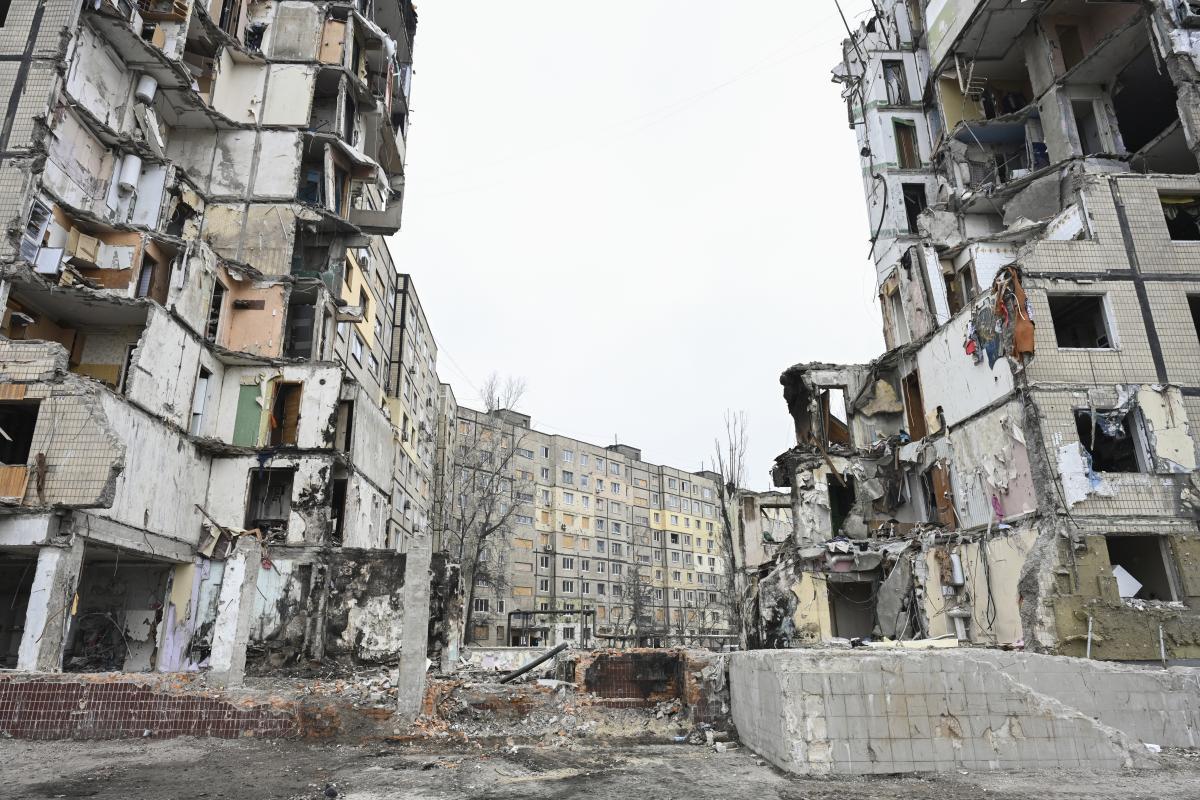
Stream of solidarity in host countries
Ukrainians who have crossed international borders since 24 February as a result of the war are refugees, who are outside their country of origin and who are unable or unwilling to return there owing to serious threats to life, physical integrity or freedom resulting from generalized violence. They should have access to protection in host states in accordance with international refugee law.
Luckily, the war in Ukraine has generated an unparalleled outpouring of solidarity and support across states, within host communities, and among families who have opened their doors or donated time and resources to welcome refugees from Ukraine. The sheer numbers of new arrivals in a short period of time have tested national and local response and absorption capacities. Remarkably, this has not resulted in waning solidarity.
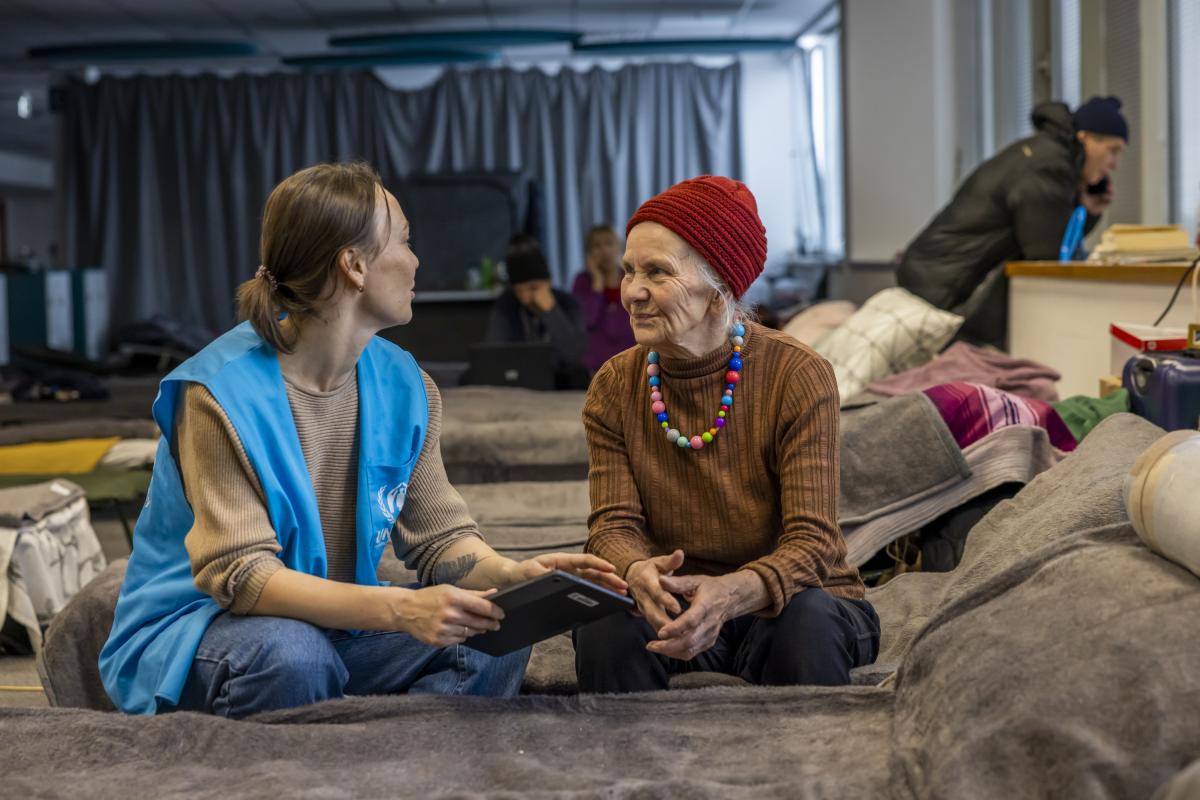
UNHCR High commissioner, Filippo Grandi was in Ukraine at the end of January for a six-day visit to witness the damages inflicted to the country and speak to those who chose or did not have any other choice than to stay and hope for an end to their living nightmare. Filippo Grandi was appalled by the level of destruction and suffering he had witnessed.
“Civilian infrastructure like power plants, water systems, kindergartens and apartment buildings have been damaged or destroyed. Civilians, including children and the elderly, have been killed or fled their homes, having their entire lives uprooted by these senseless attacks.”
Filippo Grandi, UNHCR High commissioner
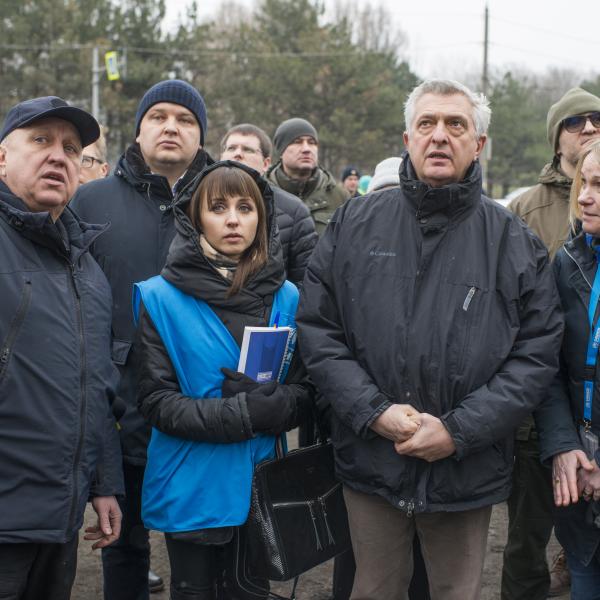
UNHCR’s unbaffled commitment to assist the most vulnerable
Despite the ongoing war, UNHCR’s priority is to help as much as possible in Ukraine and to support those seeking safety in neighbouring countries. The agency’s staff are on the ground, committed to deliver assistance when and where access and security allow it. The support is aimed towards the internally displaced, refugees as well as stateless people in the country, with a focus on the most vulnerable. During these colder months, urgent needs include shelter, relief items such as blankets– all of which rely on voluntary donations.
Among the support put in place, UNHCR provided:
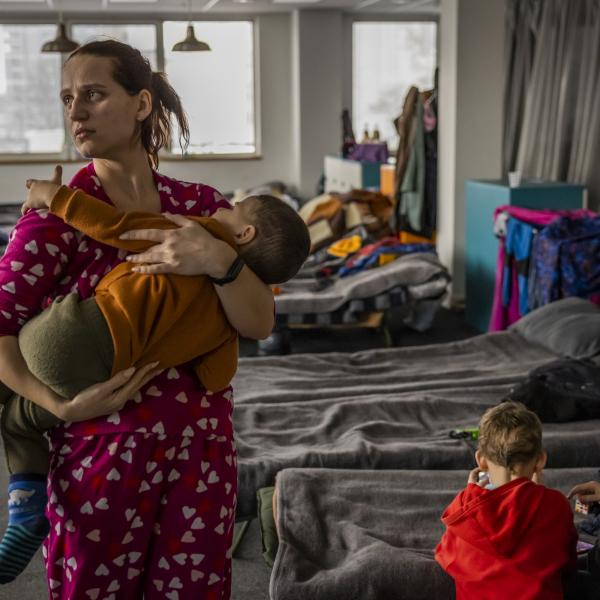
Russian shelling has destroyed many houses and buildings across the country, forcing millions to seek warmth and safety elsewhere. There are no camps with makeshift shelters in Ukraine, however people can benefit from a roof over their head as UNHCR has arranged accommodation in schools, banquet halls or gymnasiums for example. Those whose homes were damaged can also benefit from restoration of their house with the help of construction materials and UNHCR staff on the ground. In neighbouring countries, UNHCR has also arranged temporary dormitories in large facilities.
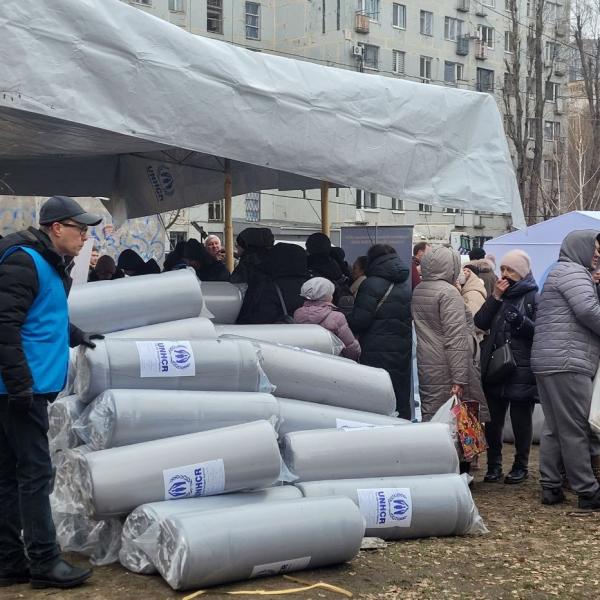
Relief items include thermal blankets, jerrycans, sleeping bags, sleeping mats, and other items to help ease the daily life of forcibly displaced people.
Refugees and IDPs also benefit, when possible, from cash assistance that enables them to buy food and pay rent among other things.
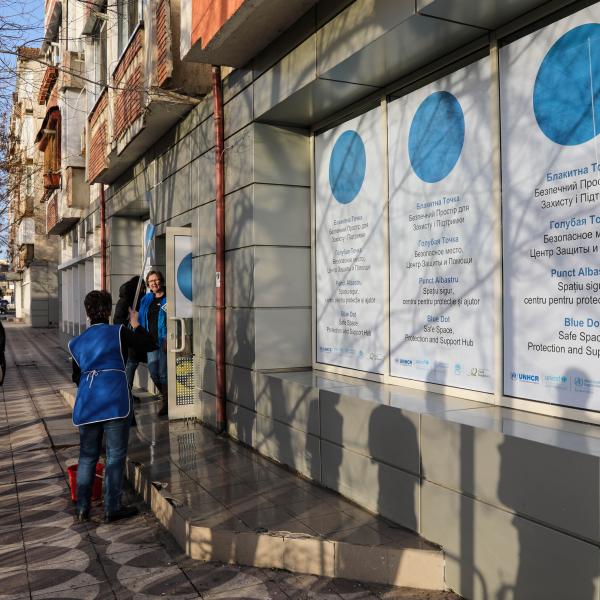
UNHCR has put in place various support centres such as Blue Dot Safe Spaces in Bulgaria, Czech Republic, Hungary, Italy, Moldova, Poland, Romania and Slovakia.
The Blue Dots offer safe spaces, immediate support and services to all persons, women, men and children of all nationalities fleeing from Ukraine. At Blue Dots, trained caregivers provide people forced to flee with updated and verified information about accommodation, travel and services, and can guide them about their rights and entitlements under temporary protection status and asylum procedures, as well as on family reunification and tracing of family members.
UNHCR’s top priority right now is to continue delivering the winterization response and critical assistance to people living in areas recently retaken by the Government of Ukraine. The winterization response has reached over 1.5 million people, but millions more still need our help. The humanitarian needs remain acute, especially in the frontline regions of the country. Humanitarian funding must therefore be sustained and expanded. While UNHCR has managed to ease the lives of forcibly displaced people from Ukraine, this would not have been possible without our donor’s generosity. There is hope for an end to this unjustified war in the future, however, in the meantime, your support remains essential.
For more information about the situation in Ukraine: